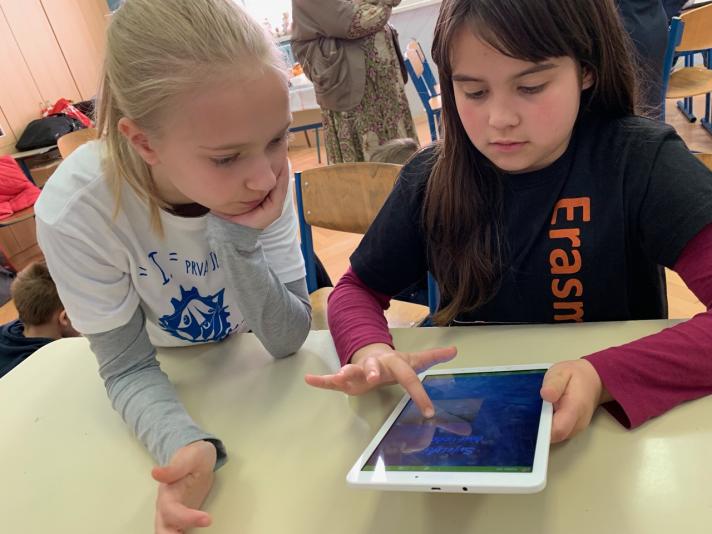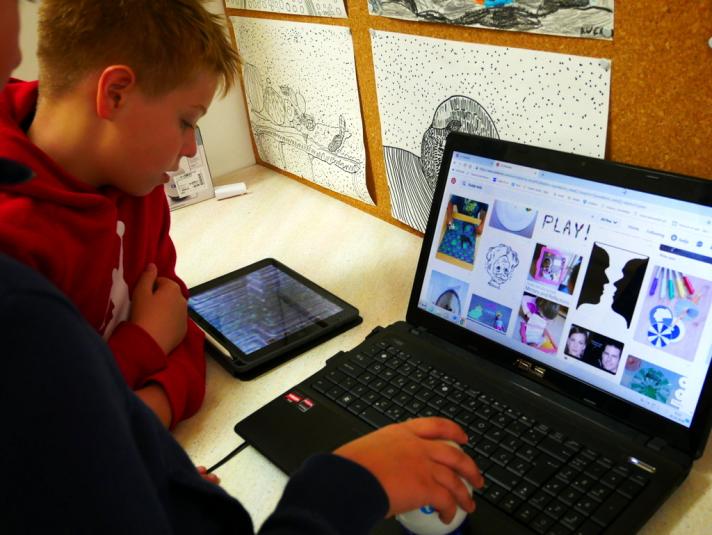Topic(s) addressed
The project’s main objective was to support the provision of digital skills and competences, with its activities having enabled teachers to proficiently integrate ICT into their classroom lessons. The project’s primary results are recommendations for online, distance, and blended learning, with project partners having prepared a manual in both Slovenian and Croatian containing three training modules with highly detailed instructions on how and when to use the 15 different ICT applications. Training modules were implemented in more than 70 Slovenian and Croatian schools, and within 3 years the project had influenced the professional development of more than 1800 teachers who went on to successfully develop their ICT competences and increase their familiarity on the theory and practice of ICT use in education.
Target groups
The project’s primary target group was primary school teachers, with approximately 1800 teachers involved in the training phase. The project’s indirect target group on the other hand, consisted of pupils who utilise new technologies in carrying out their schoolwork.
Methodologies
The manual presents 15 ICT applications that teachers of diverse subjects can use across various class types (online, distance, or blended) during different stages of their lessons. Each application is briefly presented, coupled with its mode of usage, and the ways in which it may be utilised within the classroom. The ICT applications permit for both the individualisation of lessons and commitment to learning, which improves student performance – particularly for those from vulnerable groups. In sum, the project greatly impacted the development of ICT competences of both teachers and students.
Environments
The ‘whole school’ approach was engaged during the project’s implementation, with more experienced teachers providing support and guidance (through the use of ICTs) to colleagues who were experiencing problems in teaching activities. The school’s management was an active participant in the project, and participating schools were given the opportunity to organise collaborations between teachers and other staff members, during which participants learnt how to assist and support one another. The project team functioned as a team of trainers who facilitated the meaningful use of ICTs, and they also introduced learning modules to teachers from participating schools, who then tested different environments, and categorised and selected the most effective tools for use.
Teachers
Participating teachers were trained to pass on their knowledge and best practices in a way that was most palatable to other teachers, which included motivating interested teachers on the use of new technologies when working with students. By understanding how to carefully select learning methods as well as student-appropriate activities, teachers obtained an insight into the importance of collaborative work, peer-encouragement, and mutual assistance. All partner organisation staff and teachers who attended these training modules developed their ICT competences and familiarised themselves with the theory and practice of ICT use in education. Furthermore, teachers who actively participated in the project went on to motivate other interested teachers, and instructed them on the use of new technologies in working with students, which developed their collaborative, linguistic, and intercultural competences.
Impact
Participation in the project brought about a number of positive changes to the learning practices of participating schools, including an improved understanding of the curricula with regard to recommendations and opportunities for the use of modern approaches and technologies. Furthermore, ICT-supported teaching has since become a weekly practice, with both schools having made remarkable progress over the course of the project with regard to teachers’ professional development in ICT-supported teaching. The project is characterised by its broad dissemination, with the presentation of its main results (both manual and training modules) having seen the attendance of teachers from over 70 local and national schools. Moreover, the manual’s potential was recognised by 2 publishing houses (one in Slovenia and the other in Croatia). More than 1800 Slovenian and Croatian teachers utilised the knowledge they had acquired from the project in their schoolwork, with student participants having showed both increased motivation to learn and greater interest in ICT-supported lessons. The project also resulted in a shift in thinking, openness to the use of various ICT environments, a decrease in fear, and the search for opportunities for progress. Lastly, participating teachers reported a smoother transition to online learning and digital technologies, and also felt more prepared with regard to the use of digital technologies in their daily work during the COVID-19 crisis.
- Reference
- 2016-1-SI01-KA219-021564
- Project locations
- Slovenia
- Project category
- Primary education
- Project year
- 2021
Stakeholders
Participants
I. Osnovna Skola Varazdin
- Address
- Croatia



